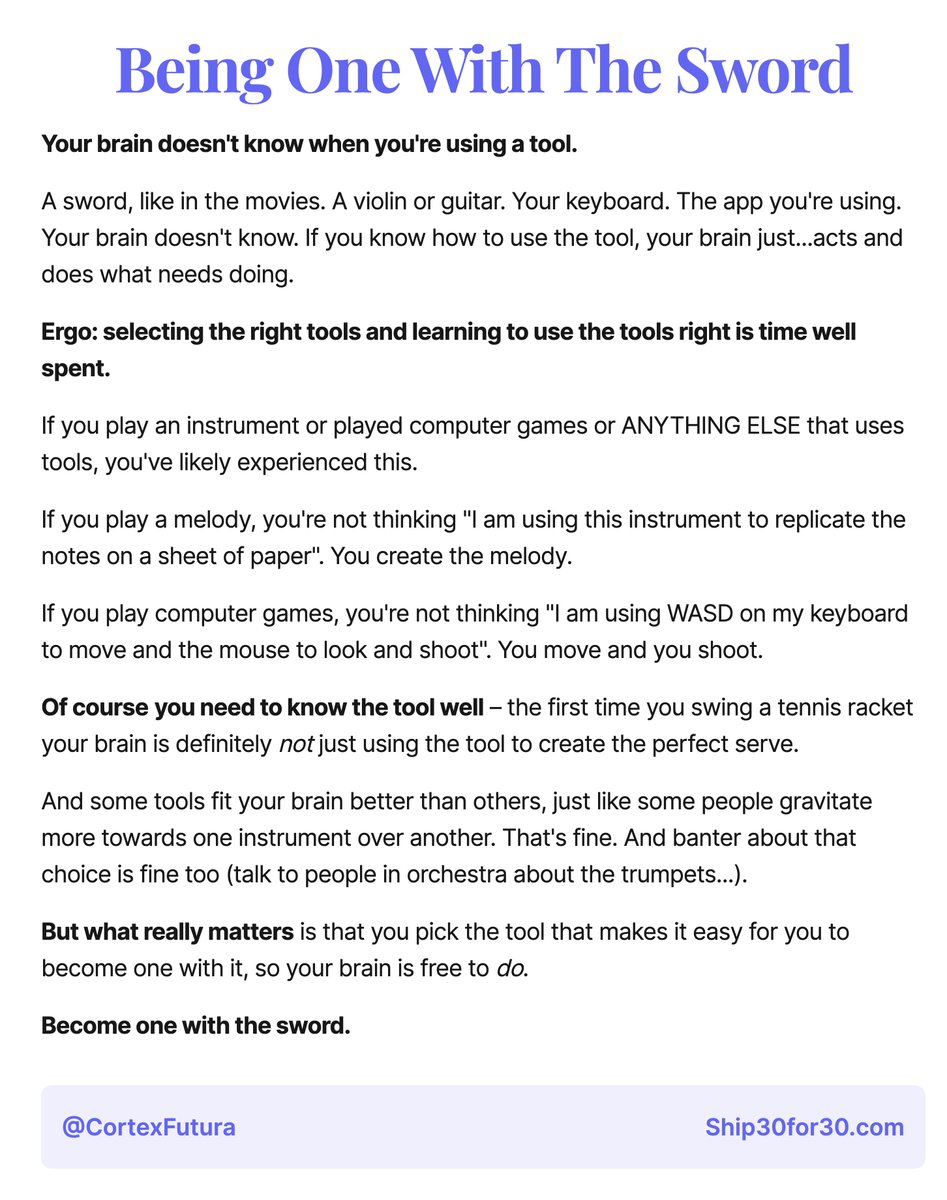
The Meta-Work Dichotomy
Working on how you do the work is important, and can be incredibly high-value over the long run.
But it matters when you do it.
Working on how you do the work is important, and can be incredibly high-value over the long run.
But it matters when you do it.

Inspired by @reasonisfun's video on Meta and @GeorgeSilverman's post:
georgesilverman.medium.com/go-meta-or-go-…
georgesilverman.medium.com/go-meta-or-go-…
https://twitter.com/reasonisfun/status/1370076164400807937
Most people don't do enough Meta-Work.
What's more, most people do their Meta-Work at the wrong time. They do it to avoid the actual work. Meta-Work at the wrong time is procrastination.
Never confuse Meta-Work with the actual work.
What's more, most people do their Meta-Work at the wrong time. They do it to avoid the actual work. Meta-Work at the wrong time is procrastination.
Never confuse Meta-Work with the actual work.
What is Meta-Work?
Meta-Work is work that improves how you do the actual work. Setting up processes. Removing friction in going from one stage to the next. Automating repetitive, low-value-high-effort steps.
Meta-Work is work that improves how you do the actual work. Setting up processes. Removing friction in going from one stage to the next. Automating repetitive, low-value-high-effort steps.
All of that is important and needs to be done. You should spend time improving processes, automating away repetitive tasks, and removing friction.
When to avoid Meta-Work
When you're on deadline. When the task at hand is hard. When you don't like doing the task. When the task requires intense focus. When you get the intense feeling that you need to do Meta-Work absolutely, positively right now.
When you're on deadline. When the task at hand is hard. When you don't like doing the task. When the task requires intense focus. When you get the intense feeling that you need to do Meta-Work absolutely, positively right now.
In short: don't do Meta-Work when you're doing it to avoid the actual work.
The Meta-Work Dichotomy
Meta-Work is important and can be incredibly high-value over the long run. But Meta-Work is work in service of doing the actual work. Which you still need to do. No amount of process improvement is going to help if the process is never used.
Meta-Work is important and can be incredibly high-value over the long run. But Meta-Work is work in service of doing the actual work. Which you still need to do. No amount of process improvement is going to help if the process is never used.
Do the work. Then do the Meta-Work for the next round.
• • •
Missing some Tweet in this thread? You can try to
force a refresh






